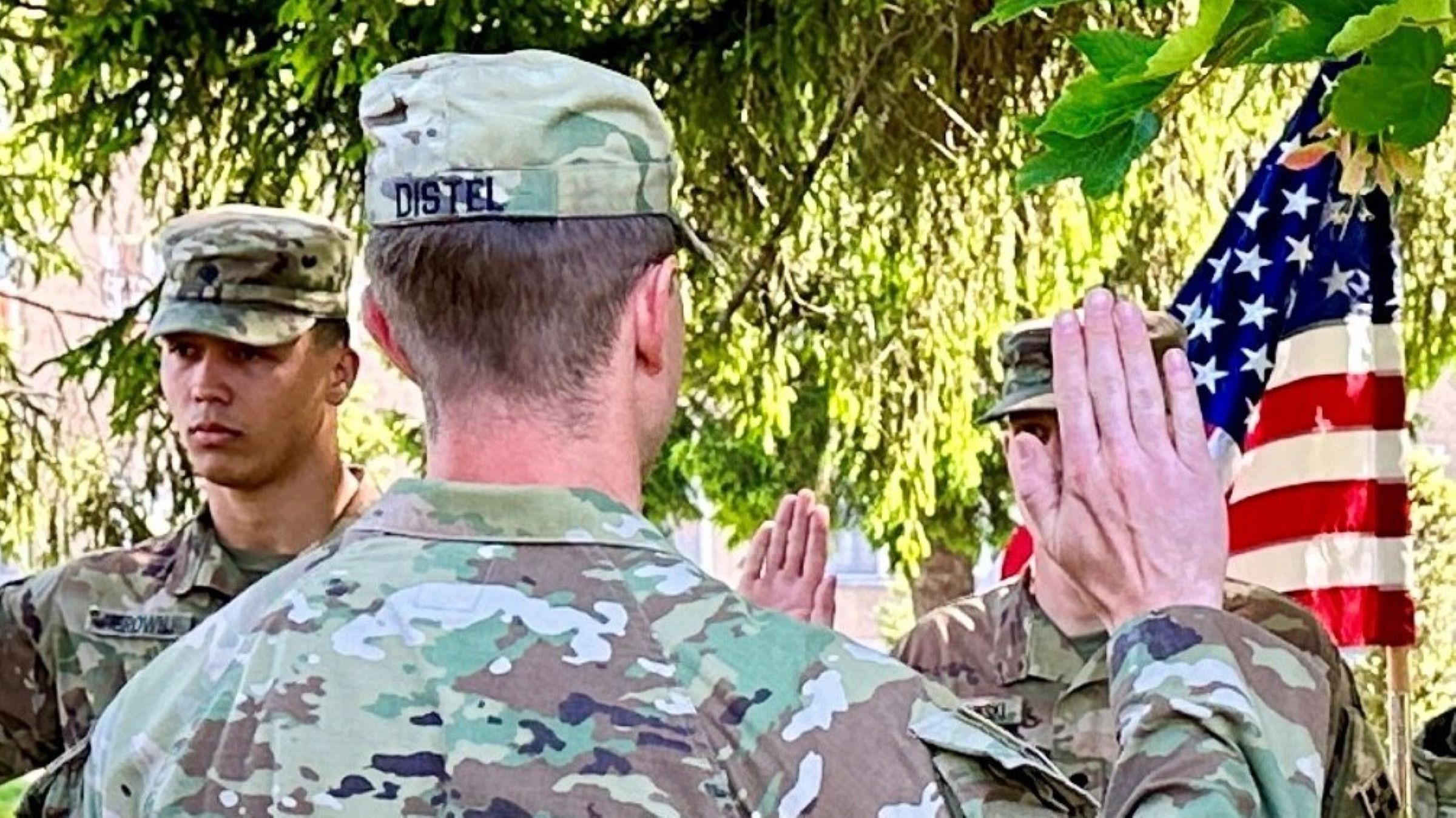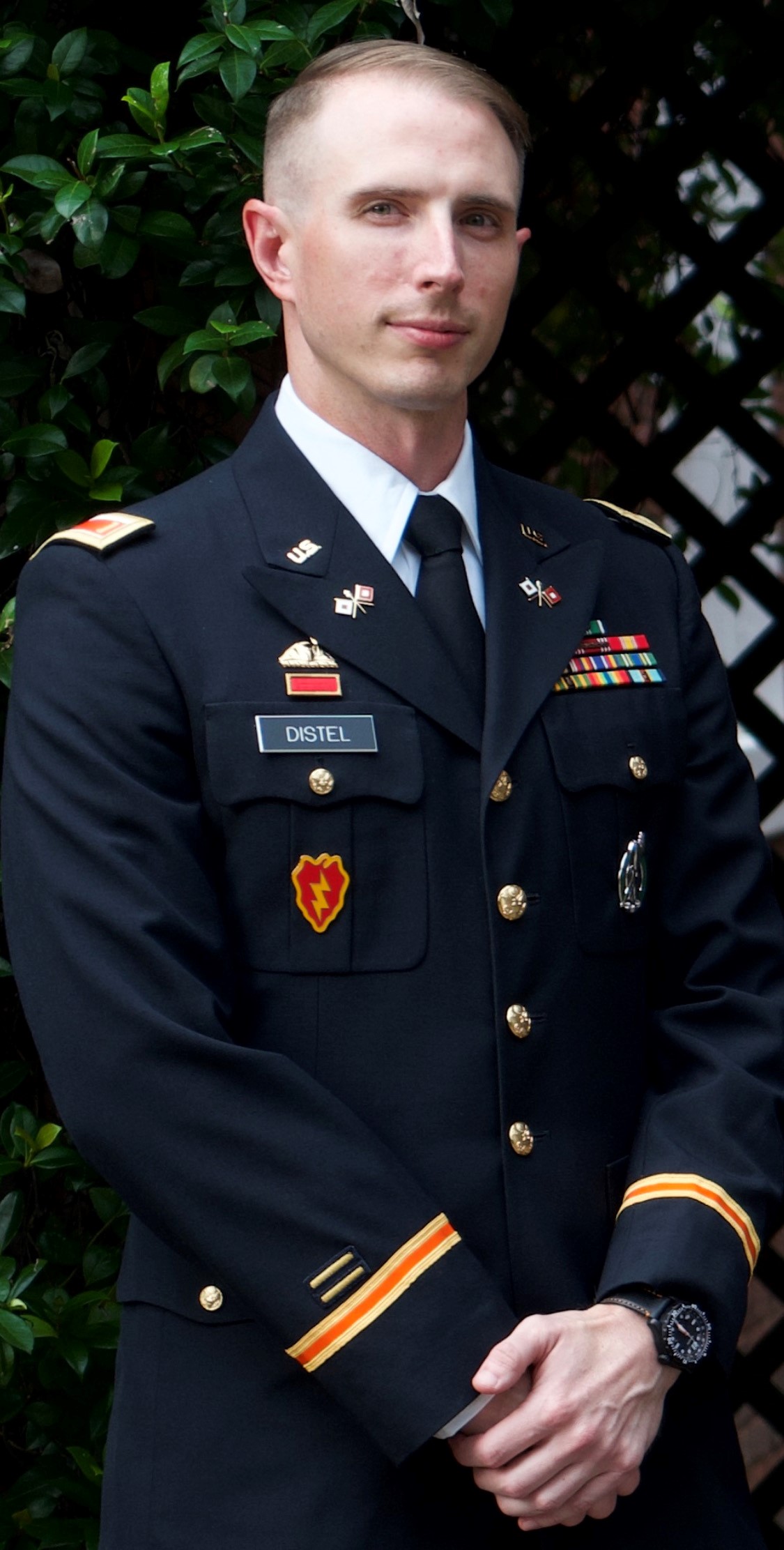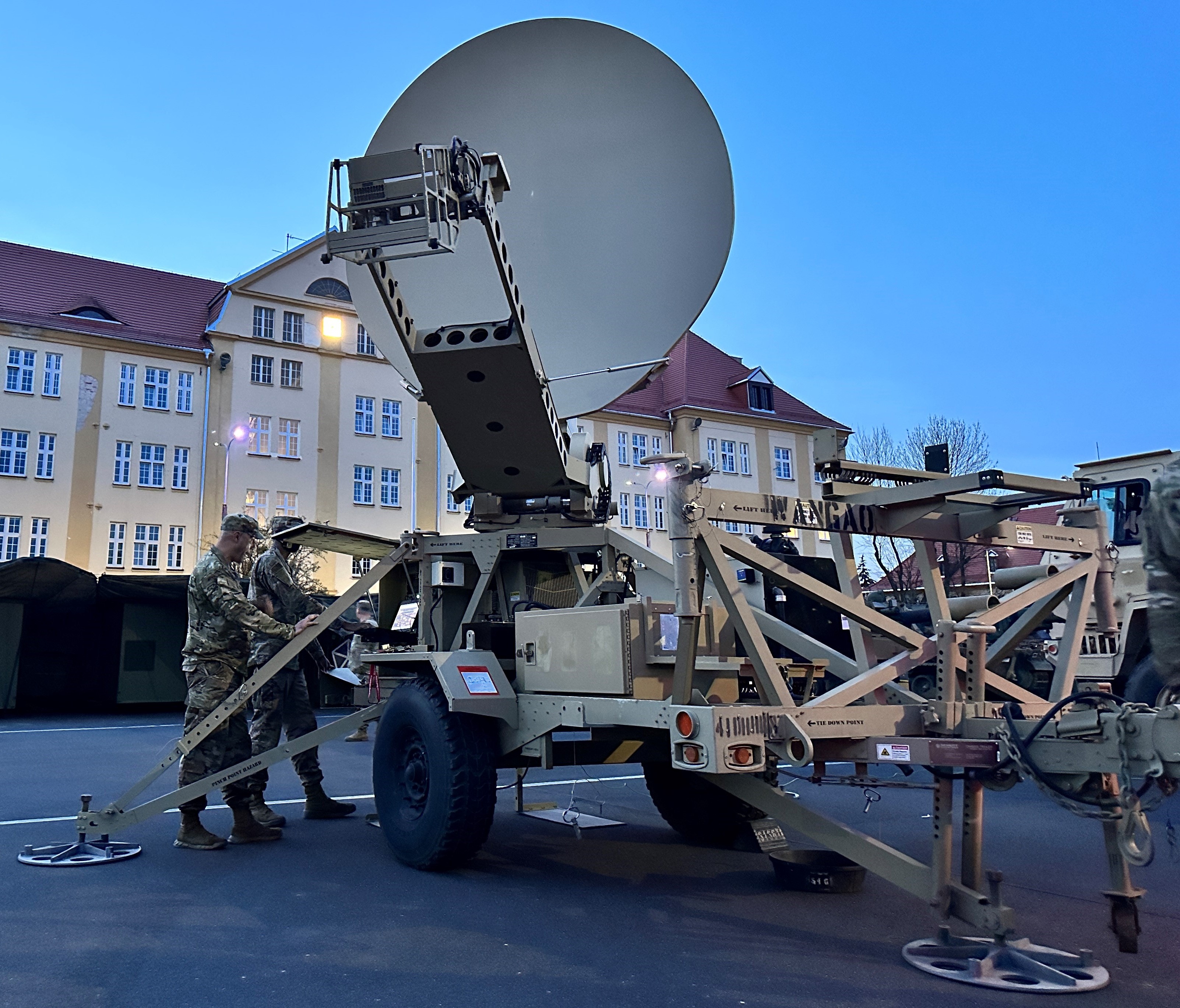From infantry soldier to student to officer: How the University of Kentucky is shaping a military leader
From infantry soldier to student to officer: How the University of Kentucky is shaping a military leader


Eric Distel's life is filled with challenges, triumphs and transitions. The Ashland, Kentucky native is currently a First Lieutenant in the Signal Intelligence and Sustainment Company (SISCO), 4th Infantry Division. Distel offers a vivid insight into how a University of Kentucky Martin-Gatton College of Agriculture, Food and Environment degree shaped his experience and is making him a better military officer.

Distel’s journey involved transitioning from an infantry soldier to a communications specialist. He made the shift not just for long-term career prospects but also for its relevance in civilian jobs after military service. His service was also driven by a legacy that runs deep through his family history.
“My dad was in the Air Force during Vietnam. My brother was in the Army during Desert Storm and then the first few rounds of Operation Iraqi Freedom. So, it just kind of felt like the right thing to do,” he said.
Right after high school, Distel served in Iraq from 2010-2011, then as a non-commissioned officer in the 3rd U.S. Infantry Regiment as part of the Old Guard at Arlington Cemetery, after which he served as an Army recruiter.
He then utilized the Army’s Green-to-Gold program to earn a degree from the UK Department of Community and Leadership Development (CLD). This educational stride wasn't just a personal achievement. His diploma made him the first in his immediate family to receive a university degree.
"Eric was one of the hardest working students I’ve ever had in the CLD program," said Keiko Tanaka, Distel’s former professor and director of undergraduate CLD studies. "As a military veteran and a father, he demonstrated the importance of discipline, teamwork and compassion. He maintained a perfect 4.0 GPA and was always ready to assist his classmates and instructors in building a positive learning environment."
Distel’s college years were distinct, characterized by the unique challenges of being a mature student among much younger UK Army ROTC peers. Yet, it was also something he embraced. Distel's prior experiences and overseas tours gave him valuable knowledge that he could share with others.
"Being older in the ROTC crowd definitely stood out, but it gave me a chance to share some real-world insights with the younger cadets, which was pretty rewarding," Distel recalled. "I enjoyed the opportunity to coach and mentor other cadets when my prior skillsets became relevant.”
After graduating in 2021, his career took a more specialized turn toward communications. Now stationed in Colorado Springs, Distel provides critical support to division headquarters in his SISCO role, one that encapsulates a modern blend of tactical and technical expertise.
Distel emphasized that his CLD degree played a crucial role in advancing his military career. He said his academic pursuit was not just about obtaining a degree but enriching his capability to lead more effectively.

"I apply the community engagement techniques I learned in college all the time,” Distel commented. "This approach can boost morale and ensure every team member feels integral to the unit. This is especially critical on military missions. The program equipped me with essential tools for the Army, such as fostering diverse viewpoints and promoting unity among team members."
Distel said the CLD courses offered insights into effective leadership strategies. These tactics are essential for anyone in a commanding role but particularly pivotal in the military, where leadership can significantly impact unit cohesion and operational success. For someone like Distel, who transitioned from an enlisted soldier to an officer, the leadership lessons were not just abstract theories but practical necessities that complemented his extensive field experience.
Looking ahead, Distel sees himself continuing in the Army until retirement. His plans are rooted in a desire to deepen his experience and extend his service to ensure a seamless transition into civilian life, where he hopes to leverage his expertise in communications technology.
Distel’s journey highlights the overall nature of the CLD program, which can provide leadership skills across all facets and occupations, even in the military.
"The principles I learned in CLD extend beyond the battlefield; they apply to all aspects of life. Whether managing a team at work or leading a community initiative, I know my degree and what I learned from the ROTC equipped me for whatever comes next.”
To learn more about the CLD program at Martin-Gatton CAFE, visit https://cld.ca.uky.edu.
###
The Martin-Gatton College of Agriculture, Food and Environment is an Equal Opportunity Organization with respect to education and employment and authorization to provide research, education information and other services only to individuals and institutions that function without regard to economic or social status and will not discriminate on the basis of race, color, ethnic origin, national origin, creed, religion, political belief, sex, sexual orientation, gender identity, gender expression, pregnancy, marital status, genetic information, age, veteran status, physical or mental disability or reprisal or retaliation for prior civil rights activity.
Making the best military officers in the world; motivating young people to be better citizens. The Army Reserve Officers' Training Corps (ROTC), as it exists today, began with President Wilson signing the National Defense Act of 1916. Although military training had been taking place in civilian colleges and universities as early as 1819, the signing of the National Defense Act brought this training under single, federally-controlled entity: The Reserve Officers' Training Corps. Army ROTC is the largest officer-producing organization with the American military, having commissioned more than half a million second lieutenants since its inception.
Both Martin-Gatton CAFE and ROTC are University of Kentucky land grant intuitions.
Alumni Students

